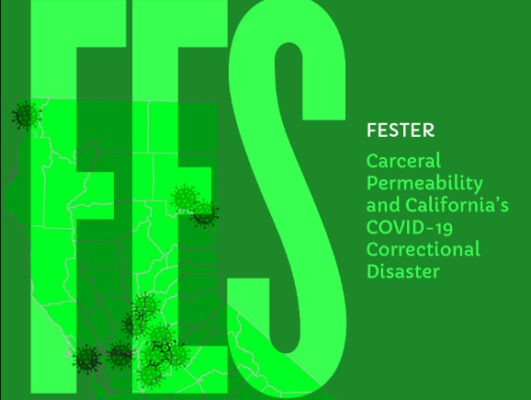"Aviram and Goerzen argue that mismanagement of the COVID-19 pandemic in California’s prisons was catastrophic for incarcerated persons. They offer a cultural history through first-person accounts, courtroom observations, policy documents, and collected quantitative data; they find immense suffering wrought on people behind bars through dehumanization, fear, and ignorance."
— Law & Social Inquiry
"Myths can kill, and Fester dissects a vicious one: the idea that prisons are worlds apart, isolated from their surrounding communities. With passion, rigor, and a flair for storytelling, Aviram and Goerzen show how California's fealty to this myth placed whole cities at risk during the coronavirus pandemic, transforming the state's overcrowded prisons into virus bombs that exploded outward. An indictment of a failed system and the politicians and judges who prop it up, this stunning book is also a call to action, laying out reforms that could save lives the next time a deadly virus proves that we're all connected."—Jason Fagone, author of The Woman Who Smashed Codes: A True Story of Love, Spies, and the Unlikely Heroine Who Outwitted America's Enemies
"Fester is a searing indictment of how COVID-19 and the state's deliberate indifference led to the worst humanitarian disaster in California prison history and a compelling obituary to the myth that prisons contain and keep us safe from risk. A triumph of sociolegal research."—Jonathan Simon, author of Mass Incarceration on Trial: A Remarkable Court Decision and the Future of Prisons in America
"This poignant and convincing cautionary tale of the pandemic experience inside California's prisons exposes the permeability of prison walls as well as the folly of contemporary public health and criminal legal priorities. Beginning with prison downsizing to counter the crowding of carceral spaces, the authors propose entirely wise and attainable remedies."—Terry Kupers, author of Solitary: The Inside Story of Supermax Isolation and How We Can Abolish It
"Aviram, with Goerzen, has produced another tour de force unpacking a new legitimation crisis in California's punishment infrastructure. Marshaling evidence from litigation, first-person narratives, administrative data compilations, and their own advocacy work, Aviram and Goerzen meticulously analyze how COVID-19 outbreaks in California prisons and jails cruelly terrorized incarcerated people and also exacerbated health risks in the surrounding communities. Impressively, the book reads like a true-crime thriller about the horrors wrought not by the people inside prisons but by the people running and overseeing those prisons. Poignant details of everyday life in prisons in crisis make vivid the book's pointed policy critiques: information gaps about criminal legal system practices, in combination with dangerously inaccurate assumptions about the impermeability of prisons and jails, produce dangerous incarceration conditions. And dangerous incarceration conditions put us all at risk."—Keramet Reiter, author of 23/7: Pelican Bay Prison and the Rise of Long-Term Solitary Confinement

